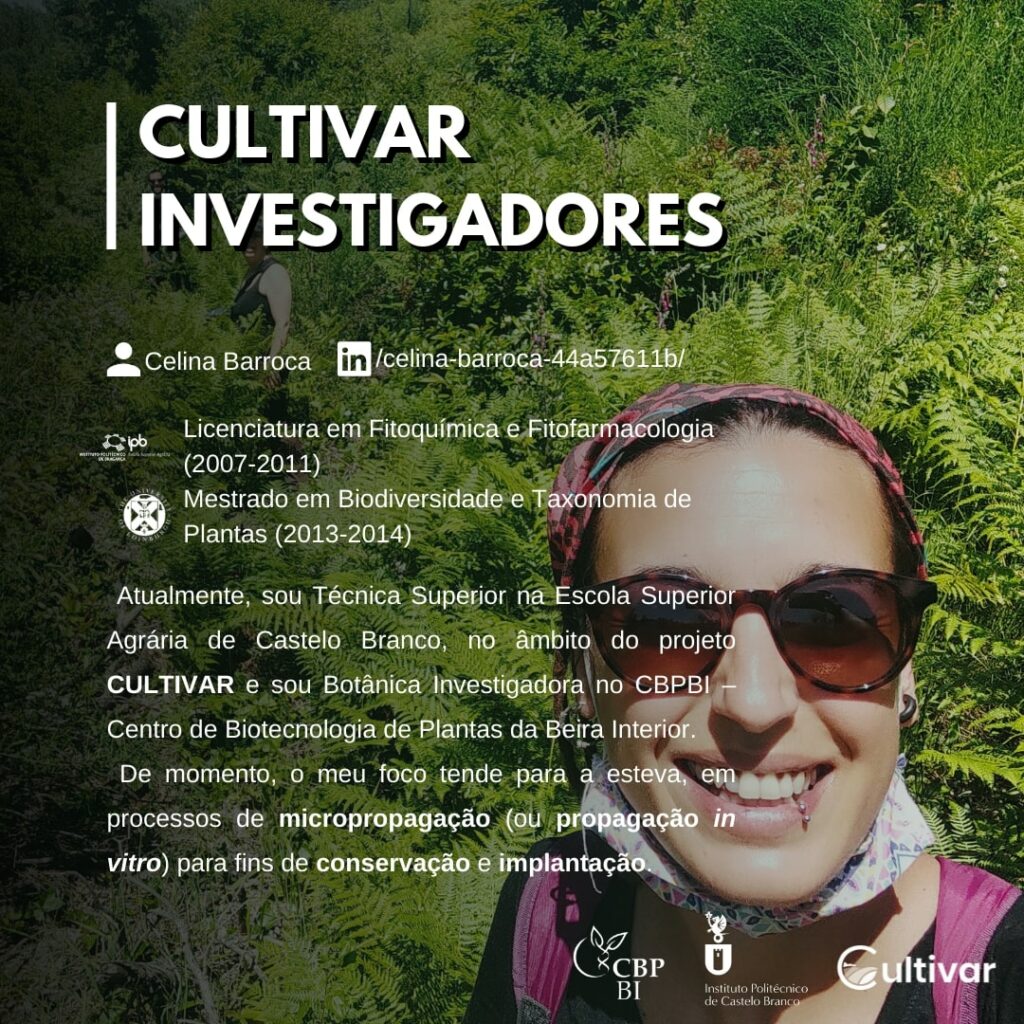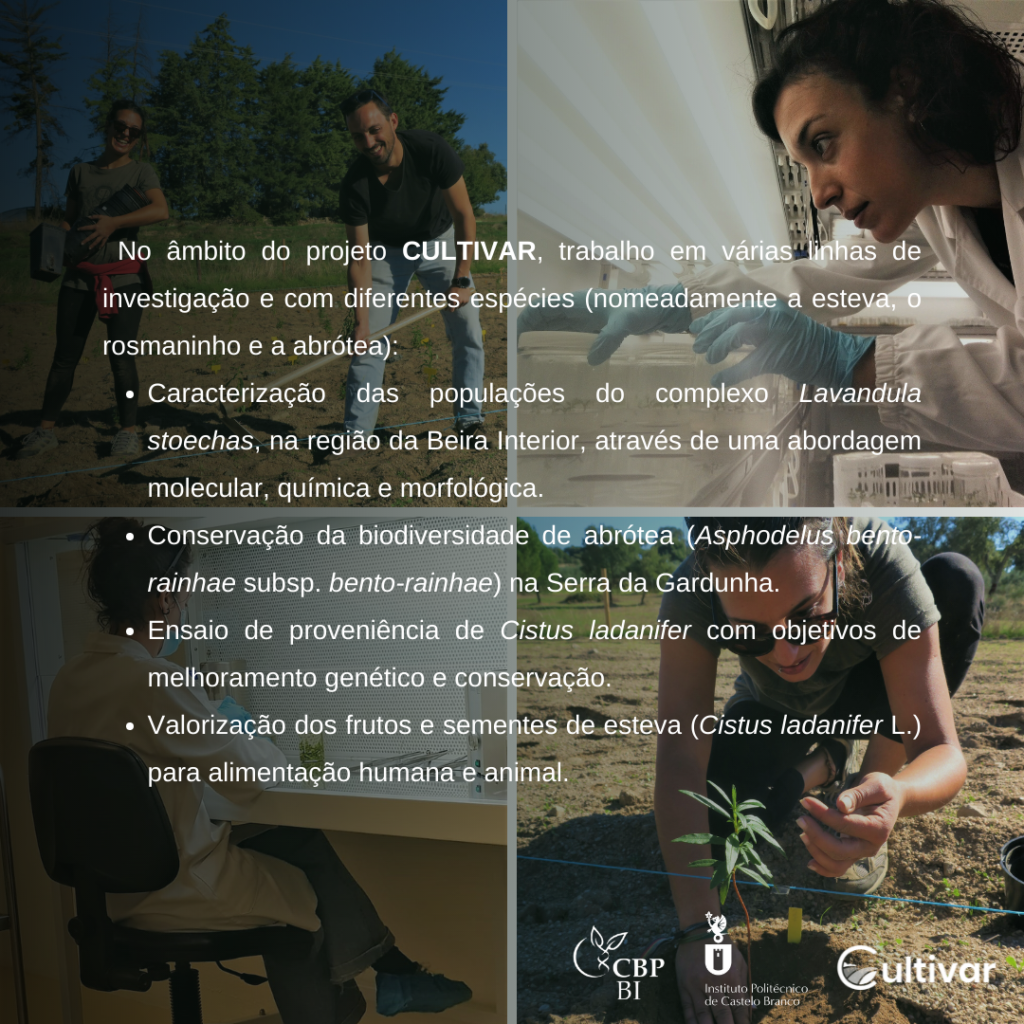At a time when biodiversity is increasingly valued and increasingly threatened, the need for trained botanists was, is and will be increasingly important. For this reason, I completed a Masters’s in Plant Biodiversity and Taxonomy at The University of Edinburgh (Scotland, 2014) and before that, I graduated from the Escola Superior Agrária de Bragança of the Instituto Politécnico de Bragança em Fitoquímica e Fitofarmacologia (Portugal, 2011).
Currently, I am a Senior Technician at Escola Superior Agrária de Castelo Branco – ESACB – Institutional, within the scope of the CULTIVAR project and I am a Botany Researcher at CBPBI_Centro de Biotecnologia de Plantas da Beira Interior (IPCB – Instituto Politécnico de Castelo Branco). At the moment, my focus is on rockrose, in micropropagation processes (or in vitro propagation) for conservation and implantation purposes. Within the scope of the CULTIVAR project, I work in several lines of research and with different species (namely rockrose, lavender and hake):
- Characterization of the populations of the Lavandula stoechas complex, in the Beira Interior region, through a molecular, chemical and morphological approach.
- Conservation of the biodiversity of hake (Asphodelus bento-rainhae subsp. bento-rainhae) in Serra da Gardunha.
- Provenance test of Cistus ladanifer for genetic improvement and conservation purposes.
- Valorization of the fruits and seeds of rockrose (Cistus ladanifer L.) for human and animal consumption.
Follow Celina’s work at:
LinkedIn – https://www.linkedin.com/in/celina-barroca-44a57611b/
ORCID – https://orcid.org/0000-0001-8805-7113
Research Gate – https://www.researchgate.net/profile/Celina-Barroca
SciProfiles – https://sciprofiles.com/profile/1943002





